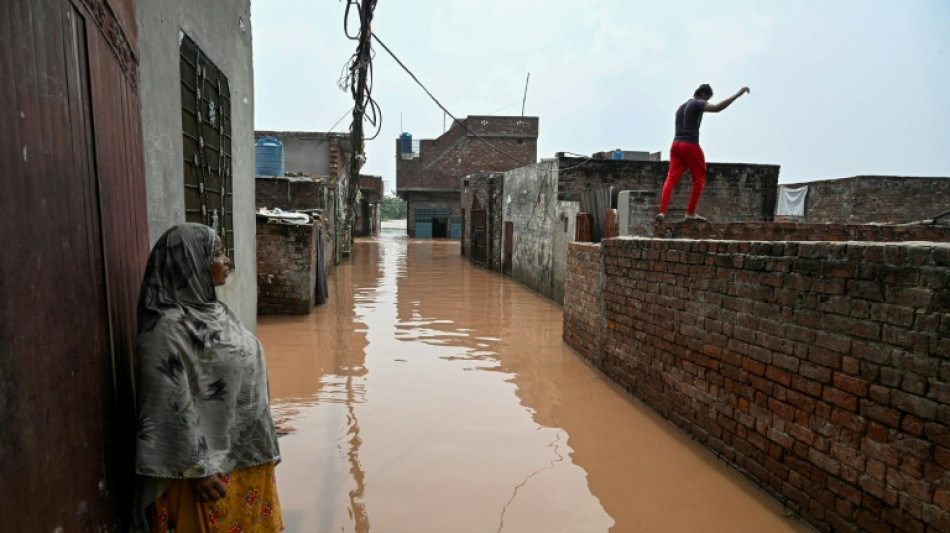
-
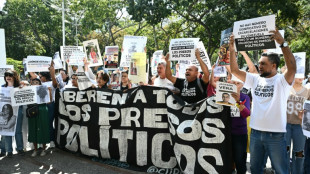 Venezuela woos US oil majors with new investment czar
Venezuela woos US oil majors with new investment czar
-
Wales Six Nations strike threat just 'speculation' for Tandy

-
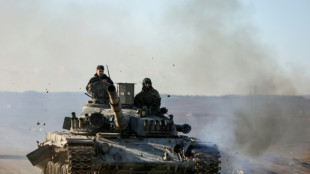 Syria government agrees new truce with Kurdish forces
Syria government agrees new truce with Kurdish forces
-
Russian interior minister in Cuba, which faces pressure from Trump

-
 US finalizes rule for deep-sea mining beyond its waters
US finalizes rule for deep-sea mining beyond its waters
-
Iran protest crackdown latest developments
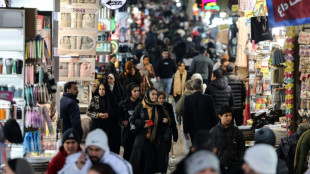
-
 Muted anniversary: Trump marks first year back with familiar grievances
Muted anniversary: Trump marks first year back with familiar grievances
-
Man City stunned by Bodo/Glimt in epic Champions League upset

-
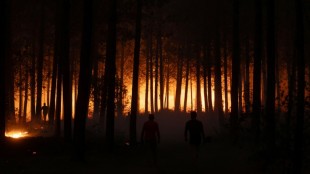 Cooler temperatures offer respite for Chile firefighters
Cooler temperatures offer respite for Chile firefighters
-
Scientists plan deep-sea expedition to probe 'dark oxygen'

-
 Howe calls on Newcastle to use spirit of Robson to inspire win over PSV
Howe calls on Newcastle to use spirit of Robson to inspire win over PSV
-
Massive US presence makes its mark on Davos

-
 Ter Stegen to join Girona on loan: Barca coach Flick
Ter Stegen to join Girona on loan: Barca coach Flick
-
France PM forces part of budget through parliament without vote

-
 Scotland boss Townsend picks veterans Gray and Cherry for Six Nations
Scotland boss Townsend picks veterans Gray and Cherry for Six Nations
-
Record try-scorer Penaud faces French axe for Six Nations

-
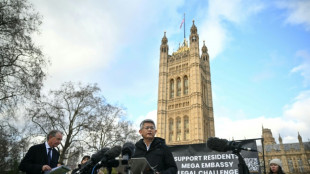 UK approves plans for Chinese mega-embassy in London
UK approves plans for Chinese mega-embassy in London
-
Rosenior keen to build winning ties with 'world-class' Fernandez

-
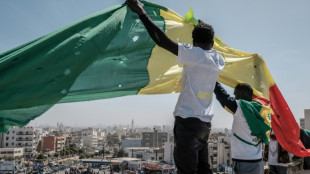 Dakar delights in Senegal parade honouring AFCON champions
Dakar delights in Senegal parade honouring AFCON champions
-
UK comedian Russell Brand in court on two new rape charges

-
 France set to face New Zealand with second-string squad
France set to face New Zealand with second-string squad
-
Eyeing China, EU moves to ban 'high-risk' foreign suppliers from telecoms networks

-
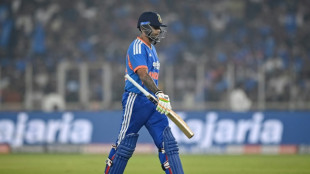 Struggling Suryakumar will not adapt style to find form before T20 World Cup
Struggling Suryakumar will not adapt style to find form before T20 World Cup
-
World stocks sink, gold hits high on escalating trade war fears
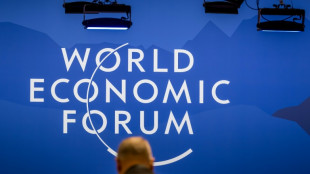
-
 Easier said than done for US to apply tariffs on single EU states
Easier said than done for US to apply tariffs on single EU states
-
Canada military models response to US invasion: report

-
 Salah returns to Liverpool training after AFCON
Salah returns to Liverpool training after AFCON
-
Milan menswear shows add bling with brooches

-
 Scotland recall Gray, Cherry for Six Nations
Scotland recall Gray, Cherry for Six Nations
-
Scheib storms to Kronplatz giant slalom victory as Brignone impresses in World Cup return

-
 Chagos Islands: international dispute and human drama
Chagos Islands: international dispute and human drama
-
Thousands of farmers protest EU, Mercosur trade deal ahead of vote

-
 Men's Fashion Week kicks off in Paris with tributes for Valentino
Men's Fashion Week kicks off in Paris with tributes for Valentino
-
Lake named as captain as Wales unveil Six Nations squad

-
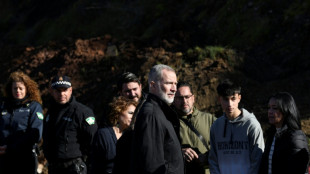 Royals visit deadly train crash site as Spain mourns
Royals visit deadly train crash site as Spain mourns
-
Police, pro-Kurd protesters clash at Turkey border with Syria
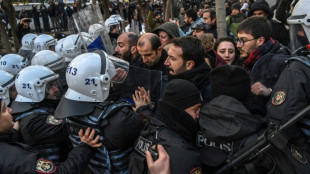
-
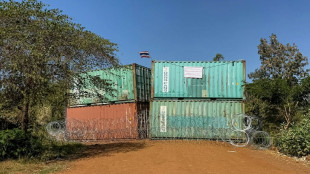 Thai forces razed Cambodian homes on border: rights group
Thai forces razed Cambodian homes on border: rights group
-
Jellyfish-inspired Osaka battles into Australian Open round two

-
 Valentino taught us to respect women, says partner
Valentino taught us to respect women, says partner
-
Australia stiffens hate crime, gun laws after Bondi attack

-
 Mercedes chief designer Owen to leave F1 team
Mercedes chief designer Owen to leave F1 team
-
Trump unloads on allies as Davos showdown looms

-
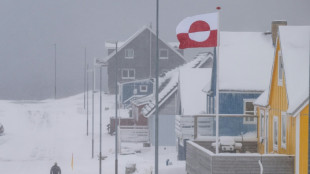 Moscow revels in Trump's Greenland plans but keeps concerns quiet
Moscow revels in Trump's Greenland plans but keeps concerns quiet
-
Global tourism hit new record level in 2025: UN

-
 Senegal poised to party with parade honouring AFCON champs
Senegal poised to party with parade honouring AFCON champs
-
Osaka emerges for Melbourne opener under hat, veil and parasol

-
 Dogsled diplomacy in Greenland proves elusive for US
Dogsled diplomacy in Greenland proves elusive for US
-
Almost half of Kyiv without heat, power, after Russian attack
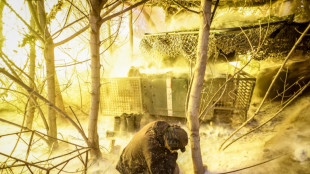
-
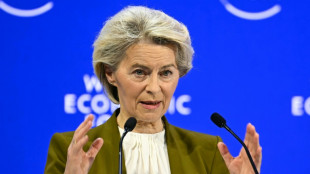 EU vows 'unflinching' response to Trump's Greenland gambit
EU vows 'unflinching' response to Trump's Greenland gambit
-
Osaka steals show at Australian Open as Sinner strolls through

| SCS | 0.12% | 16.14 | $ | |
| CMSC | -0.09% | 23.46 | $ | |
| NGG | -1.11% | 80.005 | $ | |
| RBGPF | -1.87% | 82.5 | $ | |
| CMSD | 0.42% | 24.02 | $ | |
| AZN | -4.99% | 89.94 | $ | |
| BCC | -2.04% | 83.8 | $ | |
| GSK | -1.21% | 47.645 | $ | |
| RYCEF | 0.29% | 17.1 | $ | |
| BTI | -3.37% | 56.32 | $ | |
| RIO | 0.65% | 85.69 | $ | |
| BCE | 1.05% | 24.395 | $ | |
| JRI | -0.29% | 13.66 | $ | |
| RELX | -3.31% | 40.295 | $ | |
| VOD | 0.22% | 13.5 | $ | |
| BP | -0.65% | 35.15 | $ |

Smog then floods: Pakistani families 'can't catch a break'
Perched on her neighbour's rooftop, Ghulam Bano gazes down at the remains of her home, submerged in murky, foul-smelling floodwater that has engulfed much of Pakistan's Punjab region.
Monsoon rains this week swelled three transboundary rivers that cut through Pakistan's eastern province, the nation's agricultural heartland and home to nearly half of its 255 million people.
Bano moved to Shahdara town last year, on the outskirts of Lahore, to avoid the choking smog pollution of Pakistan's second-largest city, only to have her new beginning overturned by raging floods.
"My husband had started coughing blood and his condition just kept getting worse when the smog hit," Bano told AFP, walking through muddy streets.
Pakistan regularly ranks among the world's most polluted countries, with Lahore often the most polluted megacity between November and February.
"I thought the smog was bad enough -- I never thought it could be worse with the floods," she said.
Her impoverished neighbourhood is home to thousands of low-lying homes crammed together on narrow streets.
The nearby overflowing Ravi river flooded many of them, forcing dozens of families to take refuge in an elementary school on higher ground, where doctors were treating people for skin infections linked to the flood water.
More heavy rain is predicted over the weekend, including warnings of increased urban flooding in Lahore, which borders India.
With her husband bedridden from tuberculosis, worsened by the relentless smog, Bano became the sole provider in a household struggling to breathe, survive, and endure the floods.
"I ate today after two days. There is no clean water to drink. I left my daughter at a relative's place and stayed back hoping the water recedes," she said.
- No time to pack -
Landslides and floods triggered by heavier-than-usual monsoon rains have killed more than 800 people nationwide since June this year.
While South Asia's seasonal monsoon brings rainfall that farmers depend on, climate change is making the phenomenon more erratic, unpredictable and deadly across the region.
More than 1.4 million people living near the rivers have been affected by the floods, with over 265,000 evacuated, said Azma Bukhari, the provincial information minister.
The latest monsoon downpour has killed at least 13 people, according to the National Disaster Management Authority.
"We just can't get a break," Amir Mehmood, a 32-year-old shopkeeper in the same neighbourhood as Bano, told AFP.
"Children fall ill in the smog because of the extreme cold. Some become sick due to the (everyday) unsanitary conditions," he said, referring to piles of waste that routinely line the streets.
"And now there's a flood. Our homes have collapsed, the walls have fallen, and everything is damaged."
He moved his family to a relative's home on the other side of the town along with his 10 cows and two goats as the water crept closer.
More than 300 relief camps have been set up across the province to shelter those displaced with no family to turn to.
"The women you see here, and me, we had to run for our lives... we did not even get the time to get clothes for our kids," 40-year-old widow Tabassum Suleman told AFP from the school camp.
"We do not know when we will be going back home," she said, looking up at the dark skies.
"But the worst is yet to come."
B.Wyler--VB
